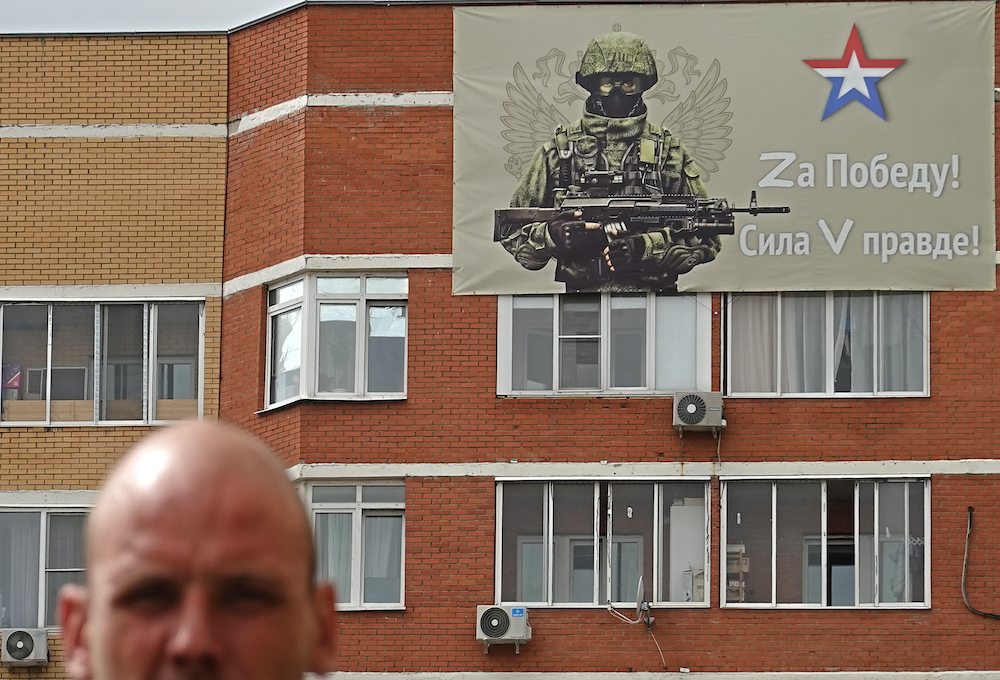The IPI global network today expressed grave concern over the continued application of the new Russian laws against discrediting or publishing “fake” information about the country’s armed forces to suppress independent reporting on the war in Ukraine.
In the latest example, on June 10 a court in Kholmsk fined the local newspaper Visit 150,000 rubles for discrediting the Russian armed forces under Article 20.3.3 of the Code of Administrative Offences of the Russian Federation. The editor of the article was additionally ordered to pay 50,000 rubles. The charges were related to an article the outlet republished calling for an end to the war in Ukraine. As a result of the fines, the publication now faces potential bankruptcy, according to reports.
On June 6, the editor of the online publication Agentura.ru, Andrei Soldatov, was added to the wanted list of the Ministry of Internal Affairs and had his bank accounts frozen. Three days later, Soldatov found out he was being charged with distributing false information about the armed forces, apparently due to an interview he gave to a YouTube channel critical of Putin, where he discussed an FSB general being arrested in connection with the war in Ukraine.
On June 2, Roskomnadzor, the Russian internet and communications regulator, drew up administrative protocols against the media outlet Lenizdat over the dissemination of false information about the invasion of Ukraine, stemming from an article published by Lenizdat on February 24 and removed on February 26 which used the word “war” in describing Russia’s invasion. According to IPI monitoring, Russian authorities have blocked access to the websites of at least 143 news and information platforms, including some of the most notable independent publications.
These incidents are the latest examples of the far-reaching effects of the laws against disinformation and discrediting the armed forces that took effect on March 5. The laws have made professional reporting on the war in Ukraine virtually impossible, forcing many foreign outlets to leave Russia, while putting the few remaining domestic publications that dare deviate from the official line under immense pressure.
“IPI condemns the continued weaponization of Russia’s disinformation and discreditation laws to suppress independent journalism”, said IPI Deputy Director Scott Griffen. “These laws are being used to silence any narrative critical of the Russian invasion of Ukraine and are designed to prevent the Russian public from receiving information that contradicts or casts doubt upon the Kremlin’s line. The laws have been used to justify website blocks, fines, arrests, and much more, becoming a favoured tool for repression.
“Russia’s laws on “fake news” are an egregious violation of international standards on freedom of expression and should be rescinded. IPI calls on the Russian authorities to stop all attacks and harassment of independent journalists, both foreign and domestic.”
What constitutes “discrediting the armed forces,” as described in Articles 280.3 and 20.3.3 of the Criminal Code and Code on Administrative Offences respectively, was left purposefully vague, meaning any sign of public disapproval could result in an investigation, charges, or a significant jail sentence. The law against disinformation, included in Article 207.3 of the Criminal Code, provided a further legal basis for restrictions on freedom of expression. As a result, those reporting on the war now risk much more than administrative fines, instead facing up to 15 years in jail. The laws apply not just to news reports, but to any form of public expression.
“The only acceptable sources of information about the war became state-controlled outlets,” said SOTA editor Aleksei Obuhov in an interview with IPI, whose outlet is one of the few independent media to maintain some operations in Russia.” While censorship could be somewhat avoided before the war, now you are treated as a criminal simply for calling things what they are.”
By the beginning of May, more than 1,700 administrative lawsuits had been filed based on Articles 280.3 and 20.3.3. Article 207.3 was used to justify the arrest of several journalists within weeks of the disinformation law’s passing.” The two laws represented a new form of war censorship,” Obuhov told IPI.
The authorities have continued to use the laws to legitimise a wide range of repressive measures. As of June 17, IPI’s Ukraine War Press Freedom Tracker has recorded 72 arrests or detentions of journalists in Russia and 141 instances of censorship and regulation attributable to Russian authorities since February 24.
Even prior to February 24, as IPI documented, independent journalism in Russia faced the biggest crackdown in more than a decade, as the authorities moved to solidify control by weaponizing a Soviet-style “foreign agent” law to blacklist independent media outlets and impose crippling fines, forcing advertisers to pull out and starving media financially. However, new laws have facilitated a crackdown on any outlets countering the government’s narrative on the war. They have become synonymous with a new level of repression.
